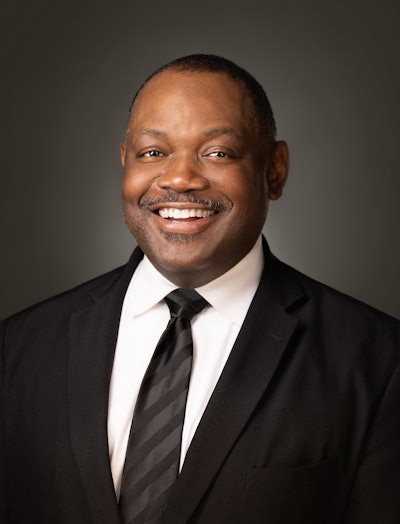Studying the data, intentional collaboration, and asking students what they need are keys to improving outcomes.
On Wednesday, the U.S. Department of Education (ED) and the Institute for Higher Education Policy (IHEP) held the Attaining College Excellence and Equity Summit: Holistic Advising and Wraparound Services in Washington, D.C. Speakers addressed evidence-based practices, collaboration, access, and advising.
U.S. Secretary of Education Dr. Miguel A. Cardona spoke about his experience as an undergraduate student. Despite doing well academically, as a first-generation college student, he felt lost. He went to the dean of the College of Education at Central Connecticut State University and said, “I need help, or I’m out.” His story illustrated the need for comprehensive advising with an essential focus on access.
The day’s panels and speakers discussed a wide range of issues and provided attendees with information on raising the bar for advising and student support.
Johns Hopkins University senior Daivik Chawla was the first person to emphasize the importance of student voices in student support. He appreciated the impact that peer mentors had on him and became a peer advisor as a sophomore.
“Advising and strong peer relationships have incredible potency,” said Chawla. “I also worked as a study consultant, where I was able to empower some of my peers by teaching them effective study strategies and time management scheduling.”
That was also emphasized with the panel, Experiencing the Power of Peer-to-Peer Advising, moderated by Dr. Chris Morphew, dean of Johns Hopkins University School of Education, on which mentor Timothy Huang and mentee Jeevika Setzer discussed their experiences. As of 2020, Johns Hopkins expanded this to a year-long program. Mentors go through a week of training prior to new student orientation. Throughout the year, mentors can provide mentees with information about mental health resources available on campus.
“When a peer is talking to you about it, it’s a more real perspective,” said Setzer.
On the panel, Learning from Leaders: Scaling Advising Solutions, moderated by Dr. John Lane, vice president for academic affairs and equity initiatives with the State Higher Education Executive Officers Association, individuals from the City University of New York (CUNY) and State University of New York (SUNY) shared models for student success. Donna Linderman, senior vice chancellor for student success, SUNY, said thinking holistically about student needs is crucial. There must be diverse hires. It is also important that advisors are trained to be culturally sensitive and responsive.
Linderman said data is used for both program management and evaluation. “Using data in a disaggregated manner where you’re looking at all dimensions of how you are delivering your advisement or your support services so that you see who is benefiting and who is not… [and see] where the gaps are,” she said. “Creating data management systems in real time so that staff are trained to use that data and to think about it as an equity tool.
“Change is the most critical dimension of a successful program,” she continued. “The data and the voices of the students tell you what you are doing or not doing as effectively as you can.”
On the panel, "Selecting Evidence-Based Advising Strategies to Improve Student Outcomes", led by Dr. Deborah Santiago, chief executive officer of Excelencia in Education, panelists spoke about their work and what they’ve found are key elements to success. Dr. Aaron Thompson, president of the Kentucky Council on Postsecondary Education, said equity must be a top priority. He also spoke about building effective partnerships.
“In Kentucky, we’ve built a culturally competent certification process,” said Thompson. “[Institutions] have to show how they’re doing with disaggregated data on the students that historically haven’t done as well as all students.
“It’s also about not being afraid to talk about equity,” he said. “If we are failing our most disenfranchised populations, we are failing in education, and we have no excuse for it.”
The day prior, ED and IHEP held a preconference, "Securing the Mental Health of America’s College Students." Data show that unmet mental health needs are linked to adverse student outcomes. A point that was emphasized throughout the sessions is crafting policies and services attuned to student needs.
The plenary panel, Cost-Effective Strategies to Increase Capacity and Scale Supports, examined barriers and innovative strategies to remove them. “One of the biggest barriers that we think exists when it comes to mental healthcare is that students are defining mental health differently than our higher ed institutions, and increasingly we feel that higher ed systems are not reflecting the values that students have,” said Laura Horne, chief program officer of the national nonprofit Active Minds.
Moving forward, institutions need to have a broader definition and attention to mental healthcare, Horne said. This includes having a holistic view and seeing mental health in relation to social issues, such as gun violence and reproductive rights as well as diversity, equity, and inclusion.
“We need full campus ownership and buy-in and need to not be afraid to embrace some of these issues, even if they’re politicized,” said Horne. “We have made a commitment over the next five years to make sure that anything we create definitely resonates with students of color and queer students because what we know is that often, when we create new things that support a small population, everybody benefits.”





















